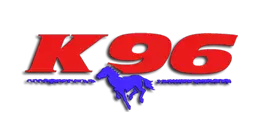
MSU Team Receives $776K Grant to Develop Faster COVID-19 Test
BOZEMAN — A new grant from the state of Montana will support Montana State University researchers as they explore a faster and less costly method for COVID-19 testing which, when used in conjunction with existing testing methods, could ultimately improve the access to and the speed of testing.
The research team includes 12 faculty members from the colleges of Agriculture, Education, Health and Human Development, Engineering and Letters and Science. It is led by Connie Chang, an assistant professor in the Department of Chemical and Biological Engineering who specializes in microfluidics, the creation and scientific use of tiny droplets of fluid in genomic and bacterial studies.
The $776,000 grant will fund research on LAMP testing, short for loop-mediated isothermal amplification. LAMP testing is an emerging complement that could be used in conjunction with the standard COVID-19 test, which uses a method called quantitative polymerase chain reaction, or qPCR, Chang said. qPCR is the most widely used test in Montana and across the U.S. and is commonly administered using a nasal swab.
The funding comes from the federal Coronavirus Aid, Relief and Economic Security Act — or CARES Act. The grant was administered by the Montana governor’s office and the Office of the Commissioner of Higher Education.
Rather than a nasal swab, LAMP testing can analyze saliva samples in as little as 30 minutes, Chang said. LAMP is compatible with “colorimetric” technology, meaning the sample changes color based on the presence of the virus: pink if the sample is negative for COVID-19, yellow if it’s positive. LAMP testing doesn’t require specialized training to use and attempts to avoid the supply-chain issues posed by the unique materials needed for qPCR tests.
“There’s a lot of research exploring LAMP right now because of its speed,” said Chang. “With the technology that we’re developing, we think we can trim the result time even more. It’s an exciting developing technology for point-of-care testing, and that’s why a lot of people are working on it right now.”
The easy-to-use and rapid LAMP tests would allow public health officials to quickly identify those with a very high probability of having COVID-19 and then confirm those cases with a subsequent qPCR test.
“The bottom line is the addition of LAMP to our testing toolbox could help increase our ability to identify COVID-19 cases,” said Jayne Morrow, MSU assistant vice president for Research, Economic Development and Graduate Education and a member of the project team.
However, before LAMP technology can be made available for use, it must be validated to ensure that it is accurate at identifying COVID-19. To perform that validation, the team will partner with MSU’s COVID-19 testing laboratory, which processes approximately 1,500 COVID-19 tests per day in partnership with Montana’s Department of Public Health and Human Services. They will compare the results of LAMP against the “gold standard” qPCR results and evaluate the new test’s effectiveness.
In addition to validating LAMP technology, the team will develop epidemiological models to help determine vulnerable populations and the optimal rates of LAMP testing to best contain COVID-19 spread. The hope is to ultimately deploy LAMP testing in order to identify and contain outbreaks and identify groups that may need to quarantine in minutes rather than days.
“This project takes a holistic approach not only to the scientific elements of exploring a new testing platform but also to the best practices for applying novel technologies to Montana’s communities,” said Jason Carter, MSU Vice President for Research, Economic Development and Graduate Education. “Our researchers continue to live the land-grant mission of Montana State by pivoting their research expertise and talents to help our state and local public health agencies to make an immediate positive impact in the effort to slow the spread of COVID-19 and maximize the benefit to our most vulnerable communities.”
Along with Chang and Morrow, collaborators on the project include professor Matthew Fields of the Department of Microbiology and Immunology and the Center for Biofilm Engineering; associate professors Deborah Keil, Raina Plowright, Matthew Taylor and Seth Walk of the Department of Microbiology and Immunology; associate professor James Wilking of the Department of Chemical and Biological Engineering; assistant professor David Millman of the Gianforte School of Computing; professor Kristen Intemann of the Department of History and Philosophy; associate professor Selena Ahmed of the Department of Health and Human Development; and Alex Adams, director of MSU’s Center for American Indian and Rural Health Equity.
- By Reagan Colyer, MSU News Service -
More From K96 FM









